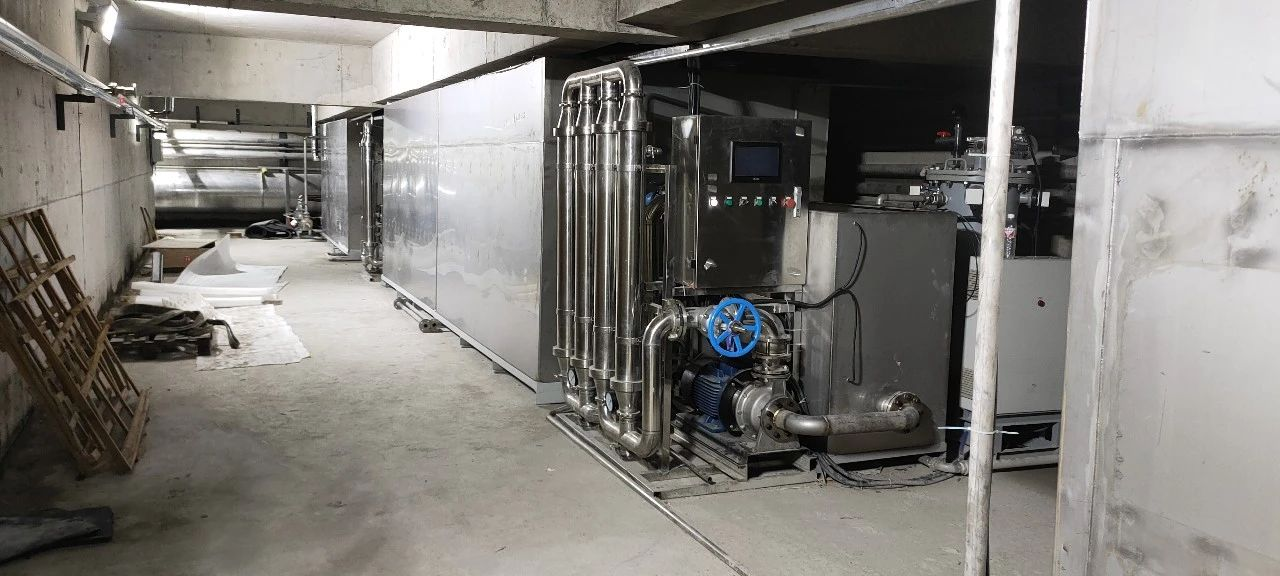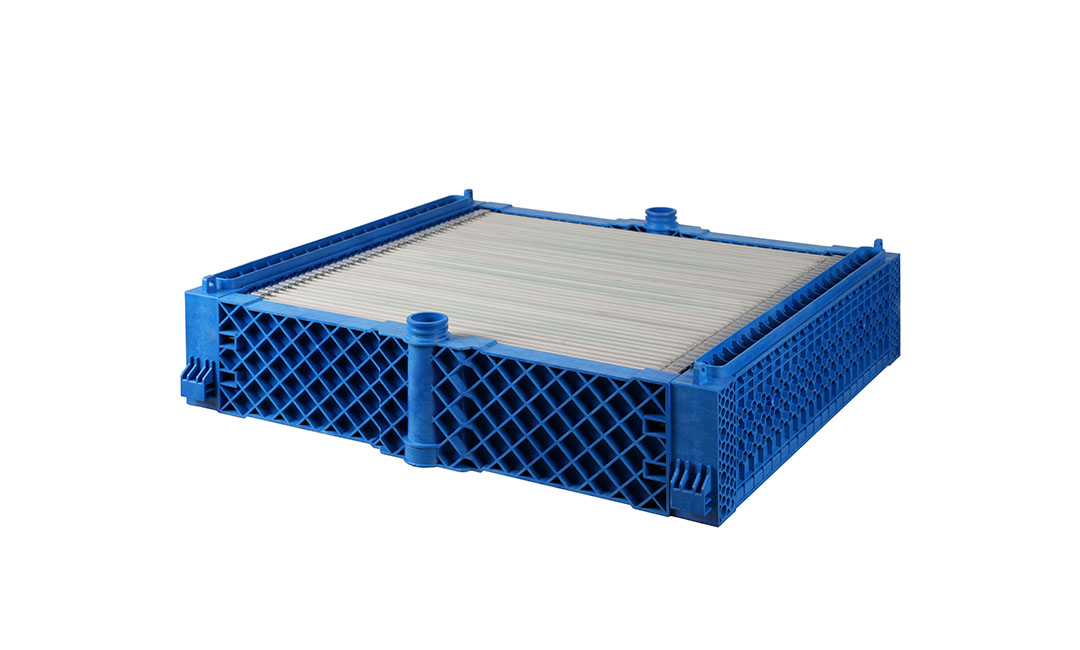Benefits of Using Silicon Carbide Ultrafiltration Membranes
Silicon carbide ultrafiltration membranes have gained significant attention in recent years due to their exceptional durability and efficiency in various filtration applications. These membranes are made from a combination of silicon and carbon atoms, resulting in a material that is incredibly strong and resistant to harsh chemicals and high temperatures. This makes them ideal for use in industries such as water treatment, pharmaceuticals, and food and beverage production.
One of the key benefits of using silicon carbide ultrafiltration membranes is their longevity. Unlike traditional polymeric membranes, which can degrade over time and require frequent replacement, silicon carbide membranes can last for years without losing their effectiveness. This not only reduces maintenance costs but also minimizes downtime and ensures a consistent level of filtration performance.
In addition to their durability, silicon carbide ultrafiltration membranes are also highly efficient. Their unique structure allows for precise control over pore size, enabling them to effectively remove particles, bacteria, and other contaminants from liquids with high precision. This results in cleaner, purer water and other fluids, making them suitable for a wide range of applications where purity is essential.
Furthermore, silicon carbide membranes have a high flux rate, meaning they can process large volumes of liquid in a relatively short amount of time. This makes them ideal for use in industries where high throughput is required, such as wastewater treatment plants or large-scale manufacturing facilities. Their efficiency also translates to energy savings, as less power is needed to achieve the same level of filtration compared to other membrane materials.
Another advantage of silicon carbide ultrafiltration membranes is their resistance to fouling. Fouling occurs when contaminants build up on the surface of a membrane, reducing its effectiveness and requiring more frequent cleaning. Silicon carbide membranes are less prone to fouling due to their smooth surface and chemical inertness, making them easier to maintain and ensuring a longer lifespan.
Moreover, silicon carbide ultrafiltration membranes are environmentally friendly. Their long lifespan and high efficiency reduce the need for frequent replacements, resulting in less waste and lower overall environmental impact. Additionally, their ability to remove a wide range of contaminants from water and other fluids helps to protect the environment and public health.
In conclusion, the benefits of using silicon carbide ultrafiltration membranes are clear. Their durability, efficiency, resistance to fouling, and environmental friendliness make them an excellent choice for a wide range of filtration applications. Whether in water treatment, pharmaceuticals, or food and beverage production, silicon carbide membranes offer a reliable and cost-effective solution for achieving clean and pure liquids. With their long lifespan and high performance, they are sure to continue to be a preferred choice for industries looking to improve their filtration processes.
Case Studies on the Durability of Silicon Carbide Ultrafiltration Systems
Silicon carbide ultrafiltration systems have gained popularity in recent years due to their durability and efficiency in water treatment processes. These systems are known for their ability to remove contaminants and impurities from water, making them an essential tool in various industries such as wastewater treatment, desalination, and food and beverage production.
One of the key advantages of silicon carbide ultrafiltration systems is their durability. Unlike traditional filtration systems that may degrade over time, silicon carbide membranes are highly resistant to harsh chemicals, high temperatures, and abrasive materials. This makes them ideal for use in demanding industrial applications where other materials may fail.
In a recent case study conducted by a leading water treatment company, a silicon carbide ultrafiltration system was installed at a wastewater treatment plant to remove suspended solids and organic matter from the effluent. The system was able to consistently achieve high levels of filtration efficiency, even when operating under challenging conditions such as high flow rates and fluctuating feed water quality.
The durability of the silicon carbide membranes was also put to the test during the study, as the system was subjected to regular cleaning and maintenance procedures. Despite the harsh cleaning chemicals and mechanical stresses applied to the membranes, they remained intact and continued to perform at optimal levels throughout the study period.

Another key benefit of silicon carbide ultrafiltration systems is their efficiency in removing a wide range of contaminants from water. The unique structure of silicon carbide membranes allows for precise control over the size of particles that can pass through, making them highly effective at removing suspended solids, bacteria, viruses, and other harmful substances from water.
In a separate case study conducted by a research institute, a silicon carbide ultrafiltration system was used to treat seawater for desalination purposes. The system was able to achieve high levels of salt rejection and water recovery rates, making it a cost-effective and sustainable solution for producing clean drinking water from seawater.
The efficiency of the silicon carbide membranes was further demonstrated in the study, as they were able to maintain consistent performance levels over an extended period of operation. This reliability is crucial for industries that rely on continuous water treatment processes to meet regulatory standards and ensure the safety of their products.
Overall, the case studies on the durability and efficiency of silicon carbide ultrafiltration systems highlight the significant advantages of using this technology in water treatment applications. From wastewater treatment plants to desalination facilities, silicon carbide membranes offer a reliable and cost-effective solution for removing contaminants and impurities from water.
As industries continue to prioritize sustainability and environmental stewardship, silicon carbide ultrafiltration systems are likely to play a key role in meeting these goals. With their proven durability and efficiency, these systems offer a reliable and long-lasting solution for ensuring the quality and safety of our water supply.
Comparing the Efficiency of Silicon Carbide Ultrafiltration to Other Membrane Technologies
Silicon carbide ultrafiltration is a cutting-edge technology that has gained significant attention in the field of water treatment. This membrane technology offers several advantages over traditional filtration methods, including higher durability and efficiency. In this article, we will explore the durability and efficiency of silicon carbide ultrafiltration and compare it to other membrane technologies.

One of the key advantages of silicon carbide ultrafiltration is its exceptional durability. Unlike traditional polymeric membranes, which are prone to fouling and degradation over time, silicon carbide membranes are highly resistant to harsh chemicals and high temperatures. This makes them ideal for treating challenging water sources, such as industrial wastewater or seawater desalination. The robust nature of silicon carbide membranes ensures a longer lifespan and lower maintenance costs, making them a cost-effective solution for water treatment applications.
In terms of efficiency, silicon carbide ultrafiltration also outperforms other membrane technologies. The unique structure of silicon carbide membranes allows for precise control over pore size, resulting in superior filtration performance. This means that silicon carbide membranes can effectively remove a wide range of contaminants, including bacteria, viruses, and suspended solids, with high efficiency. In addition, the high flux rates of silicon carbide membranes enable faster filtration processes, leading to increased productivity and reduced energy consumption.
When compared to other membrane technologies, such as polymeric membranes or ceramic membranes, silicon carbide ultrafiltration offers several distinct advantages. Polymeric membranes are known for their low durability and susceptibility to fouling, while ceramic membranes are often limited by their pore size distribution. Silicon carbide membranes, on the other hand, combine the best of both worlds – they are highly durable and resistant to fouling, while also offering precise control over pore size for efficient filtration.
Furthermore, silicon carbide ultrafiltration has been shown to outperform other membrane technologies in terms of water quality. Studies have demonstrated that silicon carbide membranes can achieve higher removal rates of contaminants, such as bacteria and viruses, compared to polymeric or ceramic membranes. This is due to the unique properties of silicon carbide, which allow for enhanced adsorption and rejection of contaminants at the molecular level.
In conclusion, silicon carbide ultrafiltration is a durable and efficient membrane technology that offers several advantages over traditional filtration methods. Its exceptional durability and resistance to fouling make it a cost-effective solution for water treatment applications, while its superior filtration performance ensures high-quality water output. When compared to other membrane technologies, silicon carbide ultrafiltration stands out for its reliability, efficiency, and water quality. As the demand for clean water continues to grow, silicon carbide ultrafiltration is poised to play a key role in meeting the world’s water treatment needs.

